If you want to become an author, there’s good news and bad news.
The bad news? Most authors don’t become rich and famous for writing books. Being a well-known, bestselling author is rare.
The good news is that you don’t have to be a famous, best-selling author to earn some money and build a group of loyal readers who enjoy reading your books.
Check out the following tips for how to become an author.
Pros
Here’s what’s great about being an author:
- Writing is an inexpensive activity. You don’t need a lot of money to write a book. Your biggest possible expense starting out would be a new computer. But if your current laptop works fine and doesn’t run painfully slow, then you already have what you need to start writing your book.
- Flexible hours. Authors should set aside at least one hour to a few hours during most days of the week to write. Other than that, you can schedule those hours during any time of the day. Many writers feel most creative in the morning, before they get distracted with other tasks and responsibilities. Other writers prefer to write in the evening, after finishing that day’s to-do list items.
- Choose your own career path. Some authors write one book or a few books before moving on to other types of writing, or even choosing to work in a different industry. Other authors choose to build their career and reputation by working on a series of books about a specific topic or storyline (example: the “Harry Potter” series). Writing a consistent series of books can help you build a loyal audience of readers who buy your books over a few years or decades.
Cons
Here are some possible challenges facing young authors:
- Unpredictable income: Being an author comes with financial risks because your business depends on book sales. A book, especially an author’s first piece, might not have many sales. On the other hand, a book that is promoted to the right audience(s) could be very successful and make a good amount of money.
- You have to be your own marketing person. Authors are creative professionals. They’re known for being uncomfortable with promoting their work (sometimes called being “salesy”). However, no one (except maybe your parents) will care about your book as much as you do. So, getting on social media and other types of promotion are important for letting people know about your book.
How to Get Started:
NOTE: Before you start your business, you should read the page on this website entitled “things to think about before you get started.” After you have taken the preliminary steps for starting any business, you can take the specific steps outlined below.
Here are some tips for starting as an author:
Step One
Consider what you want to write about. You might already have a general plot or story idea for a fiction novel. If you have a few story ideas, consider picking which story idea is the most interesting to you. Use that idea for your first book.
Step Two
Do some research about the topic or story idea you want to write about. Do a Google search on your topic to find other books related to that topic. Or look for books on Amazon in your genre. This will give you an idea of how much competition is already out there in your book’s topic or genre.
You can also look to see what types of books are most successful in your genre. For example: Do the most successful books have certain words (sometimes called keywords) in their titles? Are there certain images that appear on most book covers in your genre?
Step Three
Now, it’s time to write your book. How long it takes is up to you. An author can spend weeks, months, and even years writing one book.
Set aside some time in your daily schedule to write your book. Scheduling 30 minutes to two hours a day will help you continue to move forward with your book.
When you have your first rough draft, edit your writing and make sure your book’s main story and subplots (for fiction) or ideas/thoughts (for nonfiction) are organized into chapters and subsections that are easy for readers to understand and follow.
Also, consider having another person, preferably someone with writing/editing skills or experience, help you edit your book even if you’re great at catching common misspellings and grammar errors.
Step Four
Publish your book. Of course, that’s way easier said than done. You can try getting it published by a publishing house, but first you have to get an agent. (Most publishing houses will not take book queries from anyone except an agent.) The best approach is to Google agents who specialized in the type of book you have written (e.g. children’s, action and adventure, romance, etc.)
Unless you are a well known person (or have a super fantastic book), you will have to self-publish your book. Self-publishing is a quick and reliable way to make your book available to readers, compared to using a traditional publishing company. Amazon will let you list your book (a free service for authors) in their site’s direct publishing area.
Think about how you want readers to buy and read your book. You can self-publish your book and have traditional print copies available. Or you can use a digital eBook format (such as digital books available for Kindle readers).
Check out Amazon’s self-publishing section to learn more about your self-publishing options. Also, visit Amazon’s Kindle Direct Publishing section if you’re considering making your book available for Amazon Kindle readers.
Self-publishing is going to cost you money, but how much depends on how much work you want to do yourself and how much you want to hire others to do for you (for instance, do you want to design the cover yourself or do you want someone to do it for you? Can you get a friend or relative to proofread the book or do you want to hire someone to do it?).
There are many companies who will do everything for you except write the book — too many to mention but a good place to start is the Author’s Guild Guide to Self-Publishing.). Especially if you farm out many of the functions of self-publishing a book, expect to pay thousands.
Step Five
Promote your book. Now that you’re a published author, it’s time to get the word out about your new book. Tweet and share other social media posts. Write a book description and post your book’s cover image on your own website, if you have one.
Use these posts to announce that your book is now available and where people can buy it. Share a few interesting quotes from your book. If you’re a fiction author, you can share a little bit about one or two main characters featured in your work.
How much to charge:
There’s a wide range of book prices. For example many books on Amazon, especially ebooks, range between $2.99 and $9.99 per copy.
The reason? If you sell a self-published ebook on Amazon, you will get only 35 percent of profits earned for books priced $2.98 or less.
Compare that to authors with books on Amazon priced between $2.99 and $9.99, who receive 70 percent of sales. Books priced between $10 to $200, fall back down to a profit percentage of 35 percent.
For your first book, consider charging between $2.99 and $9.99. Go to sites like Amazon and Goodreads to see prices for books on the same topic or in the same genre as your book.
You can also consider offering discounts for certain groups of people, such as an early-bird sale for people who buy during the first week after your book is published.
Taking it to the next level:
- Invest in a great design for your book cover.
People judge books by their covers.
A book title gives a reader clues about whether or not that book is right for them. Your book’s title should be prominent and appear in the top third of your book cover
People also expect a book’s cover design to be of good quality, even if the cover has a simpler design.
Ask an artistic friend or family member to help you design your book’s cover. Or, if you have some extra money, you could pay a professional designer to create your book cover.
- Keep learning how to improve your writing.
Consider enrolling in writing classes (such as high school elective classes or college courses) offered at your school.
Also, common writing advice suggests that great writers/authors are also great readers.
Read books in the same topic area or genre as your book(s) as well as books from other genres and topics. There are also plenty of great books and blogs offering writing tips and advice.
- Do a book launch.
Did you know that you can promote your book weeks, and even months, before you publish it?
Many authors have a launch team that helps spread the word about an upcoming book. There are different ways to set up a launch team.
Here’s how a launch team usually works.
Different launch team members can agree to help you promote your books in different ways.
Some members might want to be the first group of people to read your book before it’s published.
This group is often called “beta readers” and they can give you great feedback about what they like and/or didn’t like about your book. You can then consider using this feedback to make a final round of changes or edits to your book before clicking the publish button.
Some launch teammates may want to buy your book shortly after its published and/or write a review on Amazon or a similar site. Other launch members may agree to promote the book on their own social media accounts.
A launch team can be as small as a few people or have as many as 50 people. Your launch team can include friends, family members and/or your social media followers.
- Write a book series.
Have you ever finished reading a book and thought, “I wonder what happened to the main character(s) after this story ended? Did they really live happily ever after?”
Writing a series of books about the same characters or same topic is a great way to earn more money as an author and build a loyal fan base who continues to read your work.
For ideas about writing the next book in your book series, go on social media and ask your followers if they have any questions about your latest book. Also, reading reviews about your last book can also inspire ideas for your next book.
Image Credit: Sincerely Media on Unsplash








